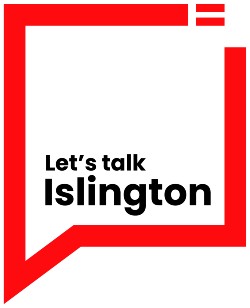As part of Let’s Talk Islington, the council assembled an Inequality Taskforce of civic, academic, and business leaders with a mix of expertise across health, poverty reduction, and education, with locally-rooted expertise, to bring new perspectives in tackling inequality.
All taskforce members have a wealth of experience in working in partnership with communities.
How it worked
- The taskforce met through a mix of online and in person meetings, including three workshops.
- Islington Council provided support by generating data and information required by the taskforce and presented the latest findings from the Let’s Talk engagement exercise at each meeting.
Read their recommendations, or download the full report from 'useful documents' at the bottom of the page.
Members
| Name | Role |
|---|---|
| Councillor Nurullah Turan | Taskforce Chair. Executive Member for Health and Social Care, and Ward Councillor for Laycock Ward. |
| Councillor Jilani Chowdhury | Ward Councillor for Barnsbury Ward |
| Dr Miatta Fahnbulleh | Chief Executive Officer of the New Economics Foundation, an organisation committed to transforming the economy so it works for people and the planet. |
| Clenton Farquharson MBE | Chair of the Think Local, Act Personal Partnership Board, SCIE trustee, member of the Coalition for Personalised Care, and the Social Care Sector COVID-19 Stakeholder Group |
| Sam Gurney | London, East and South East Regional Secretary for the Trades Union Congress (TUC) which brings together more than 5.5 million working people who are members of 48 member trade unions. |
| Professor Donna Hall CBE | Chair of New Local, Chair of Bolton NHS Foundation Trust and Integrated Care System advisor to NHS England. Former Chief Executive of Wigan Council (2011-2019) where she developed 'The Wigan Deal'. |
| Councillor Gary Heather | Ward Councillor for Finsbury Park Ward |
| Annabelle Kapoor | Head of School at Drayton Park Primary School, located in Highbury and one half of the Edventure Collaborative - a federation of two community schools in the borough. |
| Navinder Kaur | Chief Executive of Voluntary Action Islington (VAI), which aims to lead and support a resilient local voluntary sector that actively collaborates to support residents and the community. |
| Dr Torange Khonsari | Researcher and Course Leader at London Metropolitan University in the field of Cultural and Civic Commons |
| Dr John McGrath | GP at Mildmay Medical Centre, Borough Clinical Lead NCL Integrated Care Board and co-Chair Islington Borough Partnership |
| Angela Picknell | Former Ward Councillor for St Mary's Ward. |
| Dr Kelly Fagan Robinson | Leverhulme and Isaac Newton Trust ECR Fellow and Research Fellow and Postgraduate Tutor in the Department of Social Anthropology at Clare Hall, University of Cambridge. |
| Dr Ben Smith | GP Partner at Killick Street Health Centre in Barnsbury and Chair of the Islington GP Federation |
| Neil Tester | Former Director of the Richmond Group of Charities, a coalition of leading health and social care organisations in the voluntary sector, and former Deputy Director of Healthwatch England. |
Looking at inequality in Islington
The taskforce agreed early on that while income disparities are central to inequality and deprivation, looking just at financial reasons and data can be misleading.
The taskforce emphasised four areas:
- Income inequality is complicated by gender, race, sexuality, disability and a range of other factors.
- Inequality is about power as well as money: the less well-off lack the voice, influence and agency that the better-off can use far more easily.
- Those facing poverty are very widely excluded from aspects of everyday life that others take for granted such as leisure, and cultural and community activities, not just because of lack of money but also due to discrimination, damaged self-confidence and shame.
- Those facing poverty face repeated indignities and hostility from those with power or wider society such as the unreasonable conditions attached to benefit payments, discriminatory discourse and portrayals in the media and entertainment industries.
Difficult challenge
The systemic and highly complex nature of inequality makes it a particularly challenging issue for a local council to address. The challenge is made more difficult by three other factors:
- inequality in a single borough will be determined by national and global forces operating outside the control of the council
- the council is only one organisation in the borough among many others affecting the life of residents
- the council’s powers, particularly on issues that could have a major impact on inequality, such as welfare, taxation and public spending, are very limited.

Related information
-
Let's Talk Islington
To help create a more equal Islington by 2030, the Let's Talk discussions with our communities helped us understand the challenges ahead for all
-
Fairness and equality in Islington
Let's Talk was set up to find out whether residents think the borough is fair and equal for all - this is how you responded
-
Key themes
Let's Talk Islington also focused discussion and gathered opinions on nine key themes that affect everyone in the borough

